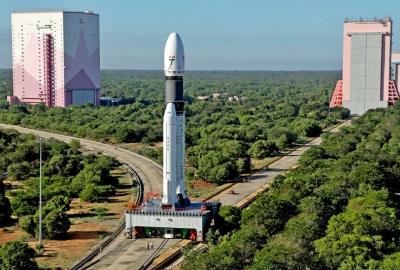Chennai: After its two rockets — Polar Satellite Launch Vehicle (PSLV) and Small Satellite Launch Vehicle (SSLV) – the Indian space agency is now looking at making its heaviest rocket LVM3 under the public-private-partnership (PPP) model.
The LVM3 is Indian Space Research Organisation’s (ISRO) heaviest rocket with a maximum carrying capacity of four ton to Geo Transfer Orbit (GTO) and eight ton to Low Earth Orbit (LEO).
The Indian space agency and NewSpace India Ltd (NSIL) , the commercial arm of Department of Space, have begun the work to make the LVM3 under PPP mode.
A stakeholder meeting was recently held by NSIL and ISRO in which representatives from over 30 companies participated.
In 2022, NSIL had engaged Hindustan Aeronautics Ltd-Larsen and Toubro Ltd consortium to make five numbers of PSLV rockets.
Last year, the Indian National Space Promotion and Authorisation Centre (IN-SPACe) had issued an Expression of Interest (EoI) for making ISRO’s small rocket SSLV.
The status of the EoI for SSLV is not known till now.
And now, ISRO has started preparations for making LVM3 under PPP mode.
NSIL has engaged the services of IIFCL Projects Limited (IPL) to explore the potential PPP partnership options for LVM3 production through Indian industry.
According to NSIL, the need for PPP mode of partnership with Indian industry for realising more numbers of LVM3 to meet the global launch service demand is essential to stay competitive and relevant in the market.
Towards this effort of NSIL and ISRO, Indian industries should come forward and become the risk sharing and investment partner as part of the programme, the company said.
Global launch service market assessment for the decade clearly indicates that there is enough demand for launching communication satellites in GTO and satellites for mega constellations in LEO.
LVM3 has a great potential and opportunity to capture this niche global launch service market in the coming years, NSIL said.






































